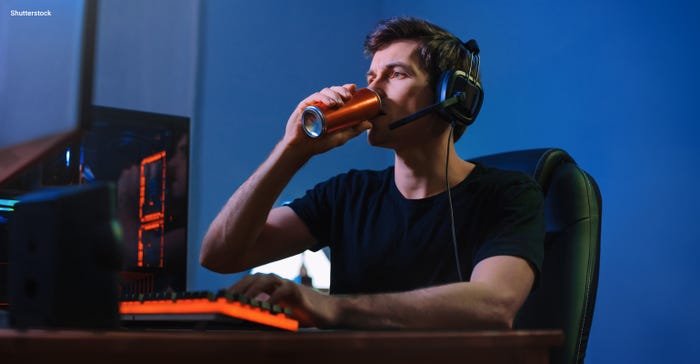Authors say ‘real world’ study validates coffee cherry cognitive benefits
A VDF FutureCeuticals research team designed a “real world” dispersed trial to validate the cognitive support benefits of its proprietary coffee cherry extract. The trial is meant to account for the skewed results that can arise from artificial laboratory settings.
August 8, 2024

At a Glance
- Artificial lab settings can skew cognitive support studies.
- Researchers designed a dispersed test model to induce “real world” effects.
- Results validated cognitive support benefits of coffee cherry extract.
A trial with a coffee fruit extract showed cognitive health benefits using a dispersed, larger scale study design that the ingredient’s manufacturer said demonstrates how effects seen in laboratory settings translate into more of a real-world scenario.
The new study was published in the journal Nutrients and was the work of researchers associated with Auburn University and an employee of VDF FutureCeuticals, which funded the research.
The research material was VDF’s proprietary coffee cherry extract, branded as CognatiQ, which is a caffeine-free extract of whole coffee cherries. According to the company, the raw material for the ingredient is grown at dedicated farms in India.
One question hovering over the research of cognitive health ingredients is to what degree the results obtained in laboratory settings can be translated to the real world. Do taking tests in an artificial environment help subjects peform better than they would otherwise? And, if so, are consumers betting on results they are unlikely to experience in their day-to-day lives?
To validate previous research in a laboratory setting, the researchers designed a blinded, placebo-controlled and randomized test that could be completed by subjects remotely. Subjects were recruited from more than a dozen states, with a larger percentage located in California, Texas, Alabama and Illinois.
Large scale trial
Over 1,000 subjects were first screened, with 323 being selected for the trial. The subjects were between 40 and 65 years old and were generally healthy with no known psychiatric or neurological conditions. A little less than twice as many women as men were enrolled in the trial. Participants also had to have access to a personal computer, tablet or smartphone to complete the cognitive testing.
The trial had an acute phase and long-term phase. At baseline, the subjects were assigned to either a placebo group or an experiment group that received a 200-milligram (mg) daily dose of the test product. They performed cognitive tests before supplementation, and then again after a single 200-mg dose. Then they continued the supplementation for 28 days, during which additional cognitive tests were completed at weekly intervals.
Validated cognitive tests
The researchers noted that previous trials using the study material showed marked improvements in two standardized tests of cognitive performance, the so-called “N-Back” test and the “Go/No Go” test.
In the first test, subjects are asked to remember a sequence of numbers or characters and respond when one is repeated at a certain interval, such as three instances previously. The N-Back test was developed in 1958 by neuroscientist Wayne Kircher as a measure of working memory and has been widely used for that purpose.
The Go/No Go test is even older, having been developed by neuropsychologist Alexander Luria in the 1950s. It tests both neuroplasticity and impulse control.
In the current study, those two tests were included, as well as several others. The researchers said the additional tests were part of the process of exploring the ingredient’s further effects and would be reported in a subsequent publication. The results of the N-Back and Go/No Go tests only were reported in the current publication.
Authors: Study validates real-world approach to product testing
The authors said the dispersed study design, in which subjects were performing the cognitive tests on their own under varying conditions would likely result in noisier data. That was one of the reasons why they said they recruited as many participants as they did to try to smooth out that noise, so to speak.
The researchers did in fact record more variability in the data than would have been expected in a lab setting but were still confident in saying the results confirmed early study results that showed significant improvement on the two tests for the experimental group.
“We feel that these data serve to enrich the growing body of evidence that CCE may support and potentially enhance brain health and function in older adults,” the authors wrote. “Given the burgeoning global interest in brain health supplementation, it is critical that more robust research efforts are devoted toward characterizing the nature and efficacy of these supplements.”
In addition, the trial served to validate a new model of a dispersed study that could take more real-world factors into account and might yield more meaningful results for future consumers, according to the researchers.
“We believe that this current study is a contributory step towards transforming the clinical trial landscape, especially for brain health supplements,” the authors stated. “The world is full of supplements with positive outcomes in laboratory settings that do not fulfill their promises when taken in the messiness of real life. Future studies should expand on this line of inquiry by conducting adequately powered, accessible remote clinical trials that take into consideration, and recognize as beneficial, the difficulties and extraneous variables that are specific to conducting such trials that mirror much more closely real-life circumstances.”
The authors concluded, “Demonstrating real-world results that are consistent with, and expand, results obtained from previous laboratory-based studies provides more confidence that the effects of CCE (coffee cherry extract) on focus, attention, concentration and accuracy are not merely a product of a sterile, artificial environment, but are in fact real effects that can be experienced at home.”
You May Also Like



